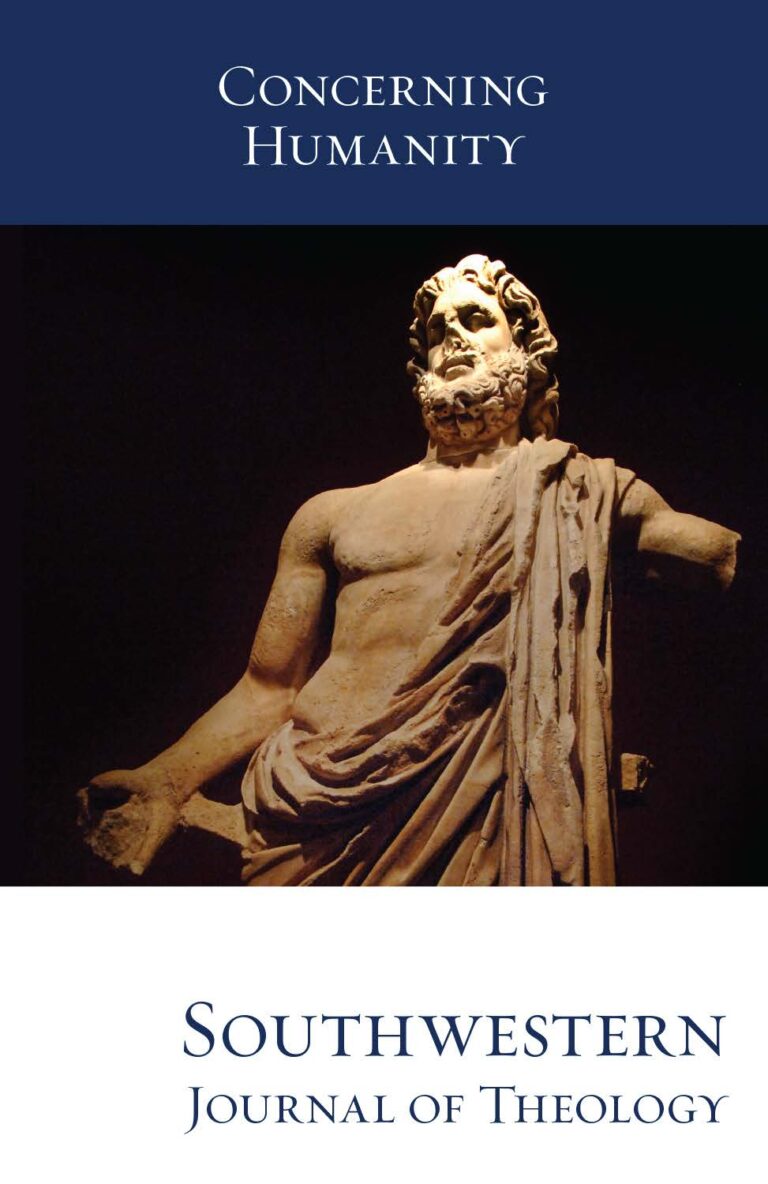
Concerning Humanity
Southwestern Journal of Theology
Volume 59, No. 1 – Fall 2016
Managing Editor: W. Madison Grace II
By Paul E. Pettit and R. Todd Mangum. Grand Rapids: Kregel, 2014. 112 pages. Paperback, $13.99
In Blessed are the Balanced, Paul E. Pettit and R. Todd Mangum hope to protect seminary students from the danger of losing spiritual vigor while increasing in spiritual knowledge. They write, “a good number of students graduate with a head full of biblical and doctrinal knowledge, but with a heart that has grown cold to God” (7). The authors, then, “[focus] on how students of God and the Scriptures can achieve a healthy balance between both rigorous academic scholarship and a growing piety” (8).
In order to assist seminarians in achieving the desired balance, the authors distinguish between Christian maturity and higher education. Christian maturity, they posit, is a matter of the heart: “(a) putting away childish things and becoming an adult in Christ, (b) partnering with the Holy Spirit to produce good fruit, and (c) walking in the light of God’s truths” (21). Higher education, however, is a matter of the mind (or head). The authors provide a brief primer on disciplines (spiritual and academic), before charging their readers to strive for balance.
The authors rightly emphasize the importance of prayer and spiritual discipline in the life of the student. Seminary students certainly may fall into the trap of rightly dividing the Word of truth (2 Tim 2:15), while failing to allow the Word to divide them (4:12). When done with proper motivation, spiritual disciplines have the power to provide the ballast needed when sailing the waters of higher education. The authors’ suggestions of academic disciplines are of equal importance. Seminary education is not an entitlement, but rather an investment entrusted to them. Students are given a stewardship with which they must demonstrate great care and responsibility.
The authors also emphasize church involvement while in seminary. Theological education exists for the sake of the church, and as such, must not be undertaken in the absence of church membership. Lessons learned in the classroom find their ultimate purpose in the sanctuary. The church is the laboratory in which the student teaches that which he has been taught, and develops relationships that provide perspective on his education. It is the place where friendships and accountability take place. These emphases were the strengths of the book.
There was, however, one point of concern. The author of chapter 1 introduces the analogy of a teeter-totter which is carried throughout the book: the desire is to help the seminarian achieve “the final goal of balancing the teeter-totter” (18). The danger of using this analogy is that it presents piety and knowledge—Christian maturity and Christian education—as ends of a spectrum at odds with one another, as though an increase in the one necessarily mandates a decrease in the other. It assumes that theological study leads to spiritual dryness, hence the need to “keep academics and spirituality, study, and godliness in balance” (137).
Balance, however, demands that one restrict one end to make allowance for the other: to restrict learning in order to make allowance for more piety, or to restrict piety in order to make allowance for more learning. Is the seminary student faced with such a moral impasse? Perhaps it would be better to challenge seminary students to dive headlong into the Scriptures, wrestling with God’s Word until they are held captive by it. Perhaps the seminary’s mandate must be to teach the Word of God to the people of God in such a way that they are moved by God to share the love of God with the world—whether in the church, the mission field, or the academy. Perhaps it would be better to view exegesis as the method of interpreting the text that affects not only belief, but action and application as well. Perhaps managing our weight and maintaining, then, should not be the end goal. It may be that the problem is not a lack of balance, but a lack of truly being held captive and transformed by the Word of God.
Blessed are the Balance is a helpful little book, designed to assist the seminary student in maintaining his spiritual fervor while in classes. Its overarching analogy is a poor choice, but its message is of incredible importance: Christian growth is not a matter of the head or the heart. It concerns the whole person: heart, soul, strength and mind (Luke 10:27).





